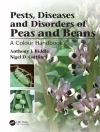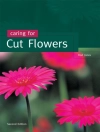The book combines food security and agricultural competitiveness issues and treat them together. It starts with definitions and evolution of both concepts, followed by reviews on global and regional food security challenges. The book identifies global agricultural trade and competitiveness patterns and uses it as a basis for analysing global food security. Further, the book also identifies countries/regions/products groups and develops a typology of agricultural competitiveness, giving policy lessons and recommendations on how to increase national/regional/global agricultural competitiveness to achieve sustainable food security goals.
The motivation behind writing such a book are numerous. First, as researchers interested in both food security and agricultural competitiveness issues, we have always found a gap in the scientific literature in treating the two notions together. Second, as lecturers of various agricultural policy and food security related courses, we have many times been faced with questions related to the competitive positions of different countries and the factors lying behind these positions. Third, as economic advisors, we have been faced with the need to provide clear policy recommendations and lessons on how increase competitiveness and associated food security many times. Such a need is mainly coming from developing country policy and decision makers.
We think the book is unique in many ways. First, it provides a consistent analysis of global agricultural trade patterns over 25 years. Second, it analyzes and synthetizes the definitions, concepts and measurement methods of competitiveness, covering a major gap in the current literature. Third, it establishes a link between the analysis of global agricultural competitiveness and food security, which is also an understudied area. Finally, the book provides policy lessons to increase a country’s agricultural competitiveness and food security by identifying its determinants.
Mục lục
Preface.- 1. Introduction.- 2. Food security and global agricultural trade.- 3. Competitiveness: definitions, theories and measurement.- 4. Who feeds the world?: Global agricultural trade patterns.- 5. Regional challenges in ensuring food security.- 6. The competitiveness of global agriculture.- 7. Understanding the factors behind agricultural competitiveness.- 8. Strategies for increasing competitiveness of agriculture.- 9. Policy lessons for attaining food security through increased competitiveness in agriculture.- 10. Conclusions and implications for future research.
Giới thiệu về tác giả
Dr. Babu was a Research Economist at Cornell University, Ithaca, New York. Between 1989 and 1994 he spent 5 years in Malawi, Southern Africa on various capacities. He was Senior Food Policy Advisor to the Malawi Ministry of Agriculture on developing a national level Food and Nutrition Information System; an Evaluation Economist for the UNICEF-Malawi working on designing food and nutrition intervention programs; Coordinator of UNICEF/IFPRI food security program in Malawi; and a Senior Lecturer at the Bunda College of Agriculture, Malawi developing and teaching computer-based policy-oriented post graduate courses.
He has been coordinator of IFPRI’s South Asia Initiative and Central Asia Program. He has been on the advisory board of World Agricultural Forum. He was a Coordinating Lead Author of Millennium Ecosystem Assessment. He currently conducts research on issues related to Capacity Development including Economic Analysis of Extension and Advisory Services; Reorganization of National Research Systems; Understanding Policy Process; and Institutional Innovations for Agricultural Transformation. He is or has been a Visiting as Honorary Professor of Indira Gandhi National Open University, India, American University, Washington DC, University of Kwazulu-Natal, South Africa, and Zhejiang University, China. He currently serves or has served on the editorial boards of the following journals – Food Security, Food and Nutrition Bulletin, Agricultural Economics Research Review, African Journal of Agricultural and Resource Economics, Journal of Sustainable Development and African Journal of Food, Nutrition and Development.
Dr. Attila Jambor is Associate Professor in the Department of Agricultural Economics and Rural Development at the Corvinus University of Budapest, Hungary. Holding a Ph D in economics, his major research interests are agricultural policy and agri-food trade analysis. He was a postdoctoral research fellow in Newcastle University (UK) for 10 months, a junior consultant to the European Parliament on the future of rural development in the CAP post 2013 and to the FAO on the diversity of effects of EU membership on agriculture in Central and Eastern Europe. He was a junior professional to the World Bank in creating the Agricultural and Rural Development Strategy of Moldova and Romania. He has received numerous awards for teaching and research excellence in Hungary. His current field of research is the competitiveness of global agriculture and its implications for food security.












